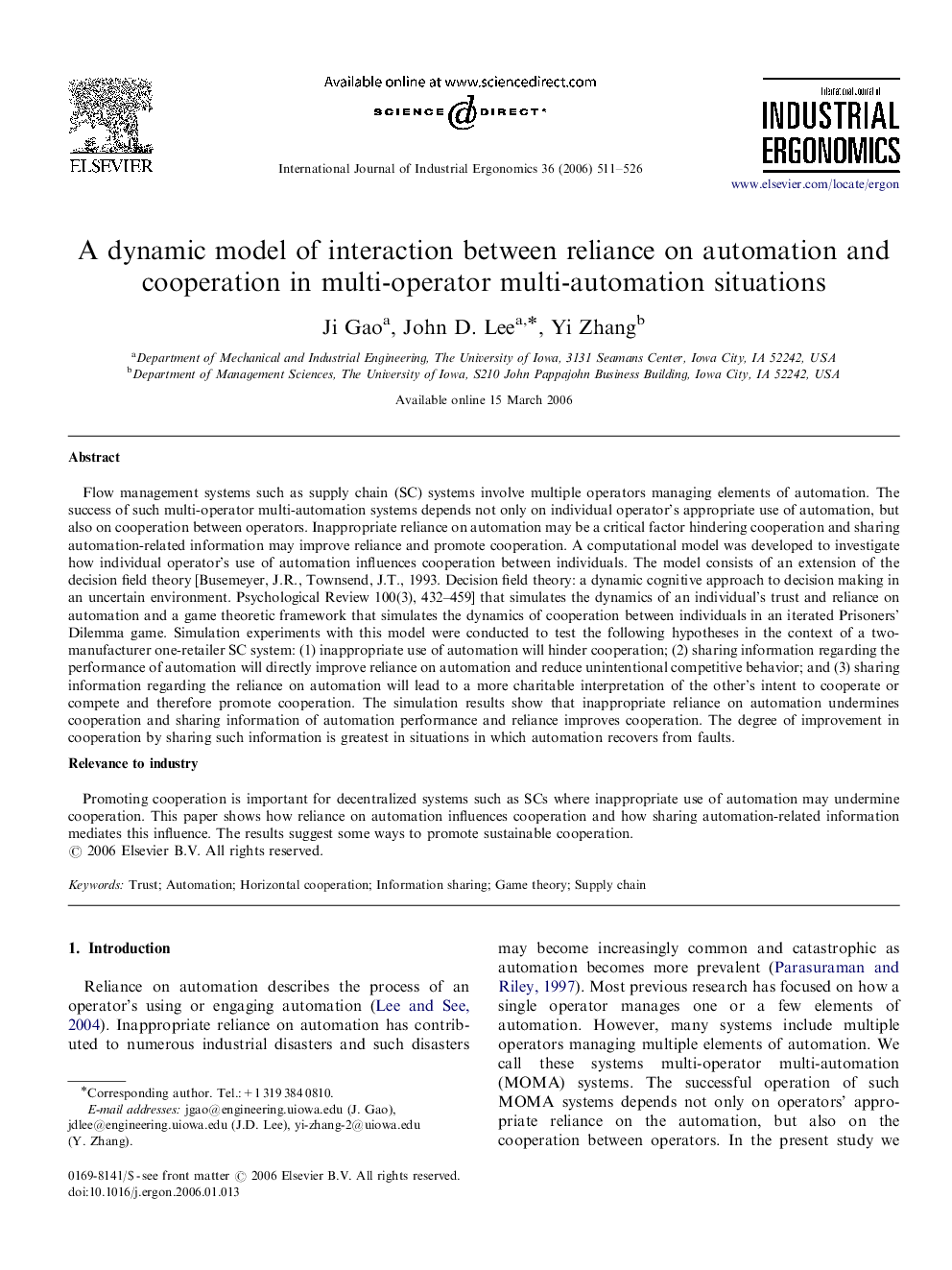| کد مقاله | کد نشریه | سال انتشار | مقاله انگلیسی | نسخه تمام متن |
|---|---|---|---|---|
| 1096839 | 1487491 | 2006 | 16 صفحه PDF | دانلود رایگان |

Flow management systems such as supply chain (SC) systems involve multiple operators managing elements of automation. The success of such multi-operator multi-automation systems depends not only on individual operator's appropriate use of automation, but also on cooperation between operators. Inappropriate reliance on automation may be a critical factor hindering cooperation and sharing automation-related information may improve reliance and promote cooperation. A computational model was developed to investigate how individual operator's use of automation influences cooperation between individuals. The model consists of an extension of the decision field theory [Busemeyer, J.R., Townsend, J.T., 1993. Decision field theory: a dynamic cognitive approach to decision making in an uncertain environment. Psychological Review 100(3), 432–459] that simulates the dynamics of an individual's trust and reliance on automation and a game theoretic framework that simulates the dynamics of cooperation between individuals in an iterated Prisoners’ Dilemma game. Simulation experiments with this model were conducted to test the following hypotheses in the context of a two-manufacturer one-retailer SC system: (1) inappropriate use of automation will hinder cooperation; (2) sharing information regarding the performance of automation will directly improve reliance on automation and reduce unintentional competitive behavior; and (3) sharing information regarding the reliance on automation will lead to a more charitable interpretation of the other's intent to cooperate or compete and therefore promote cooperation. The simulation results show that inappropriate reliance on automation undermines cooperation and sharing information of automation performance and reliance improves cooperation. The degree of improvement in cooperation by sharing such information is greatest in situations in which automation recovers from faults.Relevance to industryPromoting cooperation is important for decentralized systems such as SCs where inappropriate use of automation may undermine cooperation. This paper shows how reliance on automation influences cooperation and how sharing automation-related information mediates this influence. The results suggest some ways to promote sustainable cooperation.
Journal: International Journal of Industrial Ergonomics - Volume 36, Issue 5, May 2006, Pages 511–526